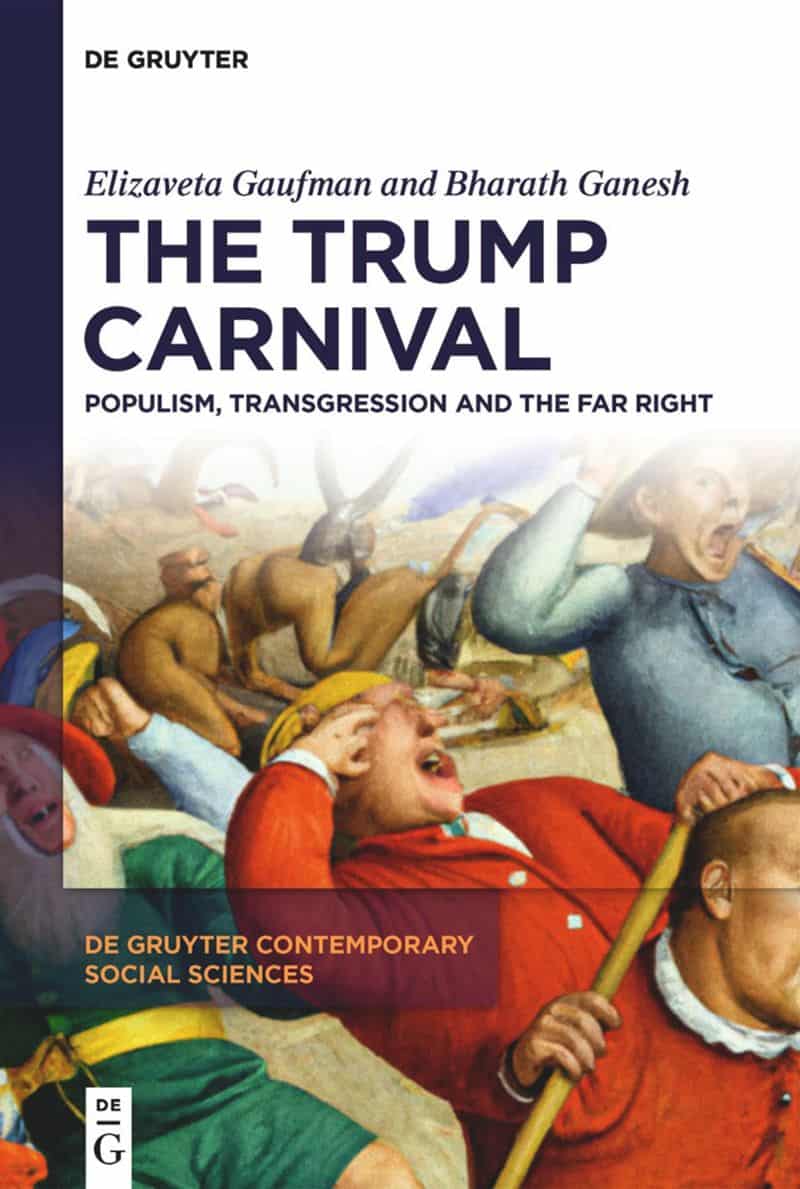The Trump Carnival: Medieval Politics on Today’s Far Right
Donald Trump's campaign and presidency not only endorsed but celebrated the unprecedented transgression of political and social norms. How did the embrace of the carnivalesque aid his ascent to power? And how much longer will its appeal last?
Wherever you live, you are probably sick and tired of hearing about Donald Trump. Especially in the US, media platforms are saturated with articles, reports, skits, parodies, and posts about the guy. Granted, it is hard to not report about a politician who promises to be a dictator, would like to kill his political opponents, and stands accused of large-scale fraud and even rape. Nevertheless, he has a real chance of becoming the next president of the United States. Clearly, this election year will be a very busy one for political scientists and engaged citizens alike.
We would like to make the lives of political scientists, whose job it is to explain the words and actions of the orange politician, a little easier. Or more complicated – depending on whether you like cultural theory. Either way, we argue that political scientists, scholars, and pundits have not quite understood Trump. We therefore present a fresh perspective on Trump to explain how he managed to win his first election, why people stormed the Capitol on January 6th 2021, and how Trump can win again in 2024.
If you are concerned for the fate of the American republic, read on.
A Festival of Transgression
Over the years, many politicians and pundits have accused Trump of being a carnival fool or carnival barking act. They are not wrong: Trump can indeed be seen as the perfect embodiment of carnivalesque politics. Carnival, according to Russian literary scholar Mikhail Bakhtin, is a festival of topsy-turvy sanctioned levity, where people in medieval European cities were allowed by those in power to engage in activities that the Church frowned upon.
Carnival liberates carnal desire and encourages transgression. Unrestrained by everyday social, political and moral restrictions, you might choose to swear as much as you want, disguise yourself, or harass women and minorities. This would take place in a carnival square, where people could talk, touch each other, eat, copulate, and laugh. Carnival was often considered a time when “real people” could reclaim their power and crown their own king.
If that description reminds you of the January 6th insurrection, we agree: the ritual abuse, the profanities, even the feces smeared inside Congress are very much emblematic of a carnival culture that extols the transgression of cultural norms and values by “the people.” This authoritarian transgression of fundamental democratic principles is central to how we approach the phenomenon of Donald Trump.
“In the Trump carnival, ritual abuse is fundamentally about licensing the transgression of democratic norms.”
In our research, we pinpoint several blind spots related to the Trumpology of today. We demonstrate how carnival can be used as theory and methodology, highlighting how transgression has become a core value for the far right in the US. Additionally, we show how the carnivalesque serves to legitimize the ritual abuse of marginalized communities, providing a useful escape from accusations of racism and discrimination through its transgressive laughing culture.
For instance, in the Trump carnival, ritual abuse is fundamentally about licensing the transgression of democratic norms. The Trump carnival’s targets are racial, religious, and sexual minorities. If Trump started with “radical Islam” and “illegals,” his carnival’s effigies now include the “woke left” and non-binary people, all in the context of a narcissistic racial fantasy that imagines white Americans as the truly oppressed, a narrative rendered in its most extreme form in debunked conspiracy theories of “white genocide”.
While our research focuses on the Trump election campaign and presidency, the carnivalesque framework can also help us de-provincialize Trump: the ideology of transgression, white supremacy, and colonial or racial legacies are often part of other carnivalesque candidates’ bids for power – styles of politics we see ascendant not only in North America but across Western Europe and even India.
Is the Carnival Over?
Trump’s recent statements suggest he might be losing not only his marbles, but also the carnivalesque flair that brought him the success and support he still enjoys. His talk of “vermin” and migrants “poisoning the blood” of the nation is not so much carnivalesque as straight-up fascist.
Whether the rise of rival GOP candidates will be the Lent that ends the Trump carnival remains to be seen, though it seems the square remains abuzz. The carnival is not over; the rules are broken, and it is up to Americans themselves to fix them.
Learn more in this related Open Access title from De Gruyter
[Title image by Paul Sableman via Flickr, CC BY 2.0]
